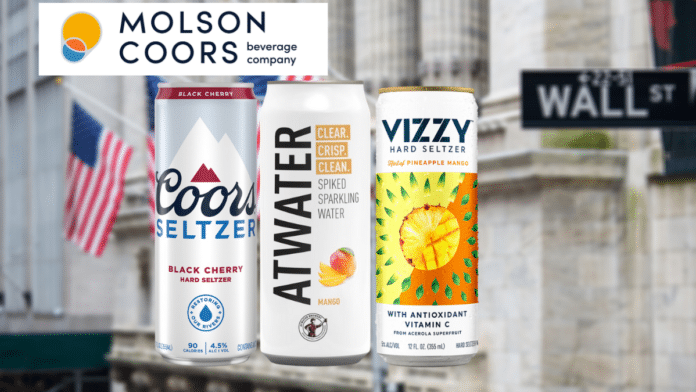Molson Coors Beverage Company (NYSE: TAP) recently reported corporate sales and profits for the period of July 1, 2020, through September 30, 2020, and beat Wall Street analyst concensus estimates for both.
And even though sales declined in the same period vs. 2019, a steeper decline was expected. The really good news for the company and its shareholders is that earnings improved for the period when compared to prior year.
Molson Coors in the midst of a Revitalization Plan, as first reported with the company’s Q3 2019 results. CEO Gavin Hattersley explained at the time, “Our revitalization plan is designed to streamline the company, move faster, and free up resources to invest in our brands and our capabilities. Through it, we will create a brighter future for Molson Coors.”
Hattersley was right.
Q3 reports included adjusted earnings of $1.62/share, which is up nearly 10% versus last year’s third quarter. And it beat Zacks Consensus Estimate of $1.04/share.
Pricing in North America, reduced marketing spends, and other reduced expenses all contributed to the improvement in earnings, according to the report.
Like their major competitors, sales have been rocked by the coronavirus pandemic, which has forced broad closure of most of the on-premise outlets that serve alcoholic beverages. But while net sales fell 3.6% on a constant-currency basis, analysts found it encouraging that net sales per hectoliter increased by 2.1% (brand volume basis), 3.6% in the US.
Hard Seltzer to the Rescue
The company acquired Atwater Brewery and expanded its hard seltzer portfolio in the process. Furthermore, Vizzy Hard Seltzer has pierced the Nielsen top-10 growth brands chart. In 2021, they expect to realize gains from the recently announced (with much hoopla) U.S. agreement with The Coca-Cola Company to make and sell Topo Chico Hard Seltzer, which will launch sooner in Europe.
Staying bullish on hard seltzer as a growth category, Molson Coors is expanding production capacity by more than 4 times, with those lines expected to be online by the end of this year. Importantly the company commissioned a slim can production line capable of producing some 750 million cans annually.
- First Look: Bud Light Seltzer Frozen Icicles - May 21, 2021
- Two Lane Hits the Road in Southeast - March 5, 2021
- Sonic Teams with COOP Ales to Launch Hard Seltzer - March 4, 2021














